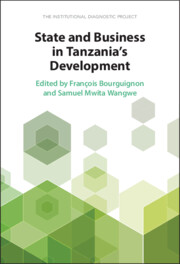The first part of this volume has sketched the main political, economic, and institutional features of Tanzania’s development, emphasising on the one hand the economic challenges the country is likely to face in trying to sustain and accelerate its pace of economic growth, and on the other hand, the possible institutional obstacles to meeting these challenges, as perceived by decision-makers and observers. The brief account of Tanzania’s political history has also shown the key role played by the structure of political power, the business elite, and the way they interact.
To understand better the nature of the institutional obstacles to the acceleration and sustainability of economic development now requires going beyond this rather general characterisation and mostly macro approach. Corruption, the land laws, the organisation of the state, or the quality of the civil service may all be unanimously perceived as major handicaps for development in Tanzania, but an institutional diagnostic requires characterising more precisely the constraints they raise for development, and, more fundamentally, the nature of the institutional dysfunctions behind them. Petty corruption does not have the same economic consequences and the same causes as grand corruption between top politicians and big business. Land laws may be more problematic in some transactions and for some aspects of development than others. If the state proves unable to perform some tasks satisfactorily, why is reforming it so difficult or even unfeasible? It is only by getting into the analysis of such detailed issues that one may hope to get into the reality of the institution-development relationship in a particular country, rather than loosely relate aggregate economic performances on the one hand and perceived dominant institutional weaknesses or failures on the other, even though a helpful first analytical step.
We proceed with such a detailed analysis in the second part of this volume through a small number of thematic studies, chosen on the basis of the most salient points arising from our economic diagnostic of Tanzanian development and the opinions we gathered on the quality of institutions, especially from key informants.

